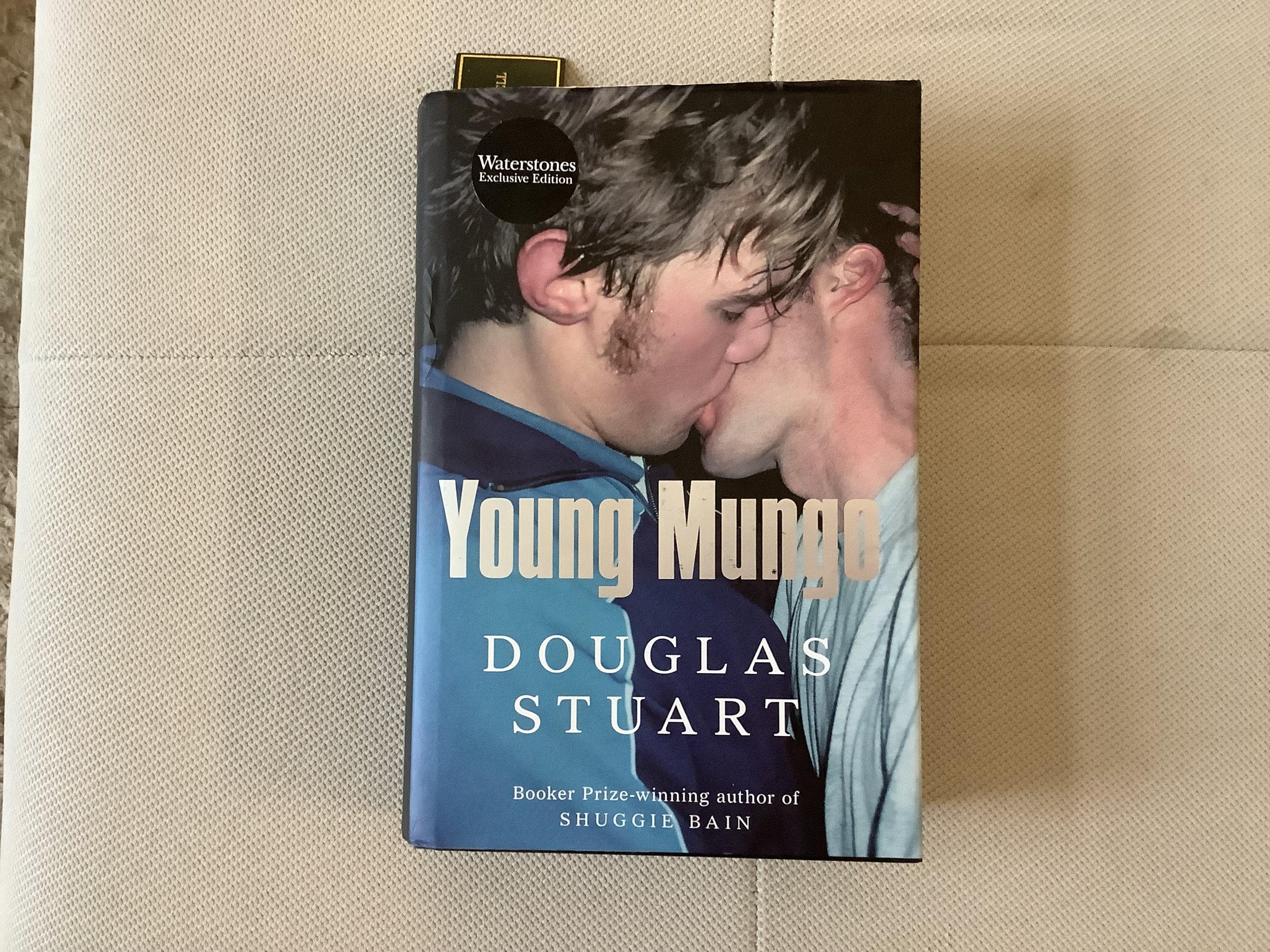Douglas Stuart: Young Mungo
This is an extraordinarily powerful, authentic sad and moving book. One of its greatest strengths is the mixture of the grimmest and harshest of environments and experiences, conveyed with stunning vividness, mixed with (all too few) moments of the most exquisite beauty and happiness – and the style of writing in conveying this aspect is done with poetic precision of language and ecstatic beauty. It’s as if a beam of dazzling light suddenly makes a details stand out from the dire darkness of the surroundings. I note the following few examples (from the Waterstones edition); pp 88,221,227, 320…Gem-like moments of tenderness, all the more powerful for being so short-lived and infrequent
The judicious use of dialect works very well – enough to add the necessary atmosphere but not so much (a la Trainspotting?) that it ever becomes inaccessible. And in the major fight towards the end, it struck me that at that time, all the children there (and yes, they are all children) are, in a perverse way, living life and feeling and experiencing it – or something.
The structure of the book is interesting as the climax build up after being approached from two directions. Difficult to explain but reading the book, it works well and is superb for maintaining tension.
And the ending – really nicely ambiguous – and yet I feel I know/want what I want to happen – and I think it will; but there is still a sliver of doubt.
The Waterstones edition has a wonderful Wolfgang Tillmans photo on the cover which is powerfully appropriate for the book – two young boys – rough looking, kissing passionately and with very harsh and unflatteringly revealing lighting, showing their imperfect teenage skin.


